Rugby World Cup: England v New Zealand semi-final
If Rugby Australia doesn’t call Eddie Jones after this performance, there really will be cause for revolution.
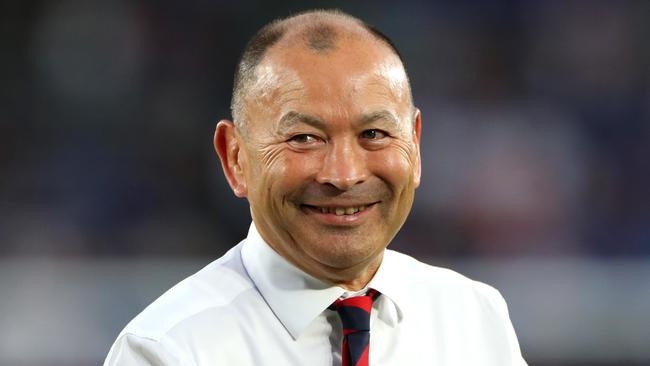
It was a coaching master class from Eddie Jones as England stormed into the Rugby World Cup final four years after being eliminated in the pool rounds in their own country, in the process denying New Zealand a chance to win an unprecedented third consecutive Webb Ellis Trophy.
If Rugby Australia goes ahead and appoints New Zealander Dave Rennie in the job to replace Michael Cheika before it has even telephoned to ask the Australian head coach of England whether he would like to work his miracles with the country of his birth, there really will be cause for revolution.
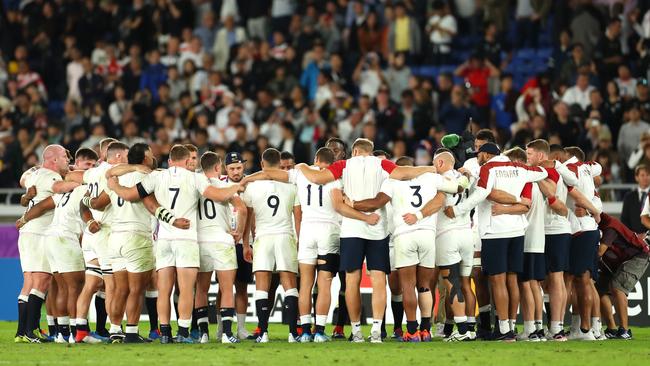
One week after eliminating Australia in the quarter-finals, England claimed the scalp of the world No 1 side and they did it in utterly emphatic fashion, winning 19-7 despite having two tries disallowed. It now sets up an enthralling final against the winner of Sunday’s second semi-final between South Africa and Wales.
It was a victory built on abrasion and England started it even before the kick-off, thumbing their nose at the convention that countries have to stand on their side of halfway while the All Blacks perform the haka.
They defied officials and lined up against the haka in a V formation instead, sending their front-rowers, Joe Marler and Dan Cole, right up into the New Zealand faces.
And when the assistant referees tries to order them back, Marler put his hand to his ear, feigning deafness.
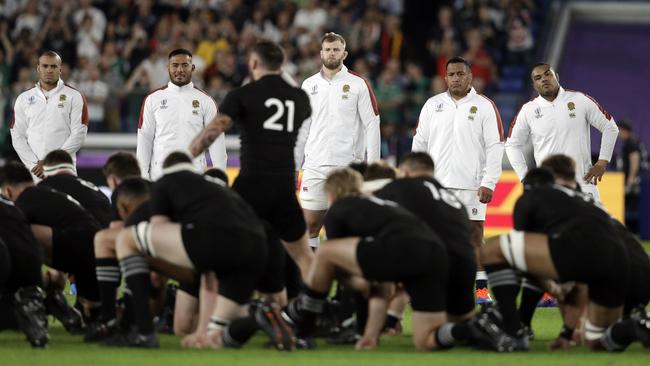
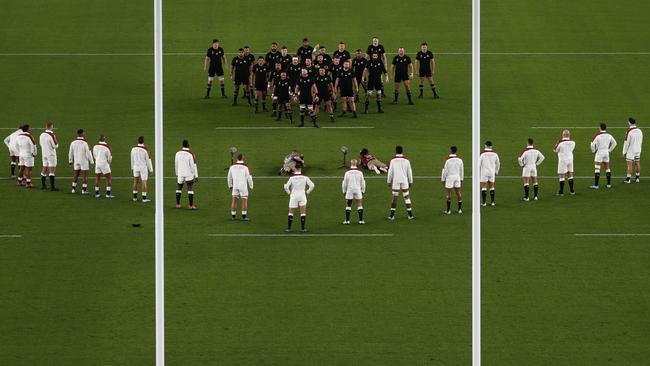
It was a marvellous display but having taken the grandstand gesture, England then had to produce a performance that backed it up. And did they ever!
Just 1min 43sec into the match, centre Manu Tuilagi crashed over beside the posts as England immediately put the All Blacks on the back foot.
They went right, then left before tighthead prop Kyle Sinckler managed to get a brilliant offload away to five-eight George Ford. Instantly England surged forward, with lock Courtney Lawes driving play on to within a line. From there, a powerhouse player such as Tuilagi would not be denied.
England maintained the line speed pretty much throughout the entire match, and even though Jones admitted afterwards that this match, like World Cup matches in general, were won with defence, there was enough subtlety in the England attack to keep the All Blacks constantly befuddled.
The halves Ben Youngs and Ford constantly peppered the All Blacks with high balls and though winger Seve Reece eventually stepped up to defuse them later in the match, there was more than enough confusion early on to give England every encouragement.
The folly in All Black coach Steve Hansen stacking his lineout by playing Scott Barrett at blindside flanker was exposed during the first half as England stole two of their throws.
Territorially, it was pretty much all England in the opening stanza and it seemed that England would not get a fair return on their dominance when they led only 7-0.
But a Ford penalty goal pretty much on the halftime hooter, after Tuilagi had herded All Black five-eighth Richie Mo’unga into the midfield, enabled the men in white to head to the break 10-0 up.
They would have hoped for more, especially since what appeared to be Sam Underhill’s maiden Test try was overturned because of obstruction.
But certainly the young England flanker didn’t need to score tries to reinforce his standing — along with fellow flanker Tom Curry — as two of the most dominant players in the match.
Certainly Hansen thought so because he abandoned his Barrett experiment at halftime and brought on a genuine “fetcher” in Sam Cane for the start of the second half.
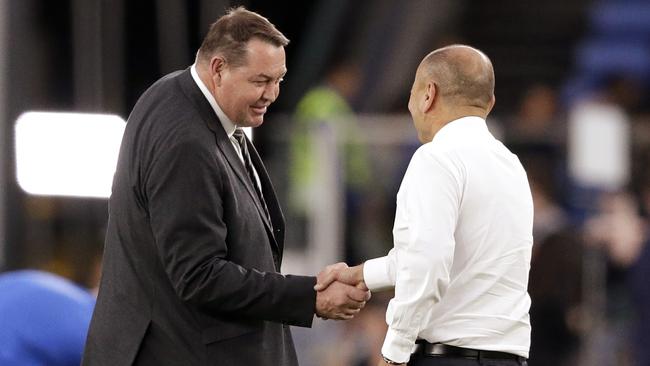
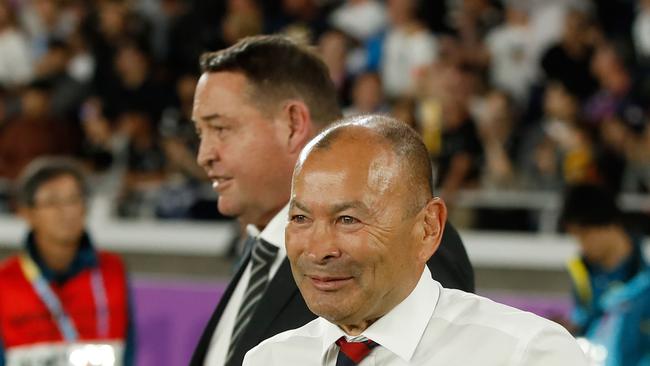
It all looked to be getting away from New Zealand when England almost drove their lineout maul to the line in the 45 minutes for Youngs to catch them totally unawares with an extravagant dummy and a quick dart for the try.
But then the TMO again saved the reigning world champions, ruling that there had been the most subtle of knock-ons in the maul.
It really was starting to look like all the luck was flowing New Zealand’s way when the England lineout, which pretty much had been flawless all night, suddenly malfunctioned.
Hooker Jamie George overthrew lock Maro Itoje and the ball landed nearby for All Black flanker Ardie Savea, who looked momentarily gobsmacked before gathering his wits and diving over.
Suddenly it was 13-7 to England but very much game on. For a moment, the All Blacks seemed to believe that their trademark comeback was well and truly on. Yet England held their nerve, reset, and increased their lead, first to 16-7, then 19-7 through two Ford penalties.
For a man who was thrust into the goalkicking role because captain Owen Farrell was nursing a corked thigh, Ford did remarkably, landing all but one shot to make certain that England was always getting full benefit from its dominant field position.
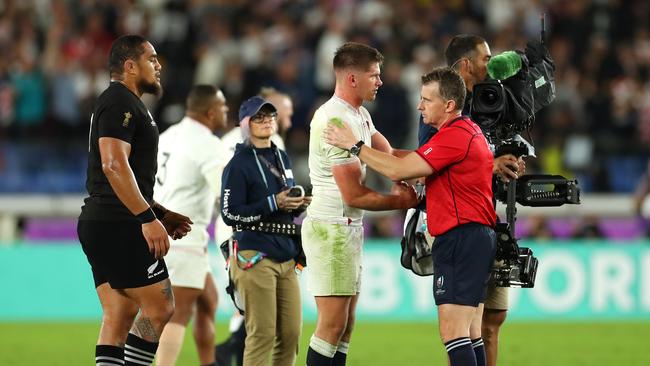
The longer the match went, the more fragmented the All Blacks became, but that is not to suggest that they were any the less dangerous.
No side does “ad libbing’ better than the All Blacks — OK, with the possible exception of Fiji — but even though they brought all their strike weapons to bear, Beauden Barrett, Sonny Bill Williams, Savea and Brodie Retallic, they simply could make no impression on the Red Rose defence.
Certainly there was an element of panic in their game. They normally alternate between the first and second line of attack but on Saturday night they seemed intent on “going out the back” at every change.
Their forwards kept offering themselves as runners, frequently running into holes, but after a while the England defence realised that the real danger lay out in the backs and began targeting their marks.
Otoje was immense, so too Lawes before he was replaced, while the Kamikaze Kids, Curry and Underhill, who had never played together before August, looked to be developing into a two-man tackling juggernaut.
This was Jones’ 150th Test — 57 as coach of the Wallabies, 44 with Japan, 49 with England — and arguably this was his greatest World Cup coaching display.
Still, how can one honestly say that this win was somehow superior to coaching Australia to a semi-final win over the All Blacks in the semi-finals in Sydney in 2003, or beating the Springboks in the Miracle of Brighton as coach of Japan in 2015? Each was special in its own unique way.
More Coverage
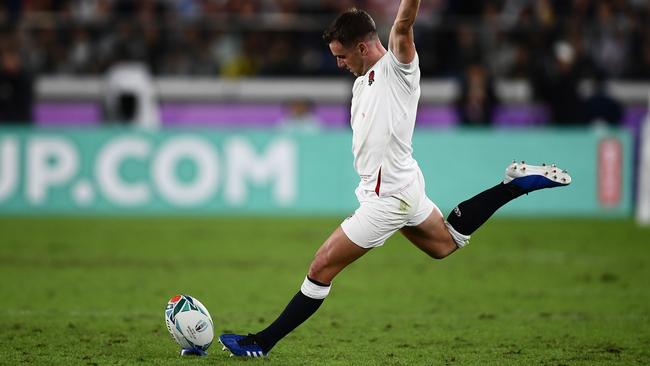


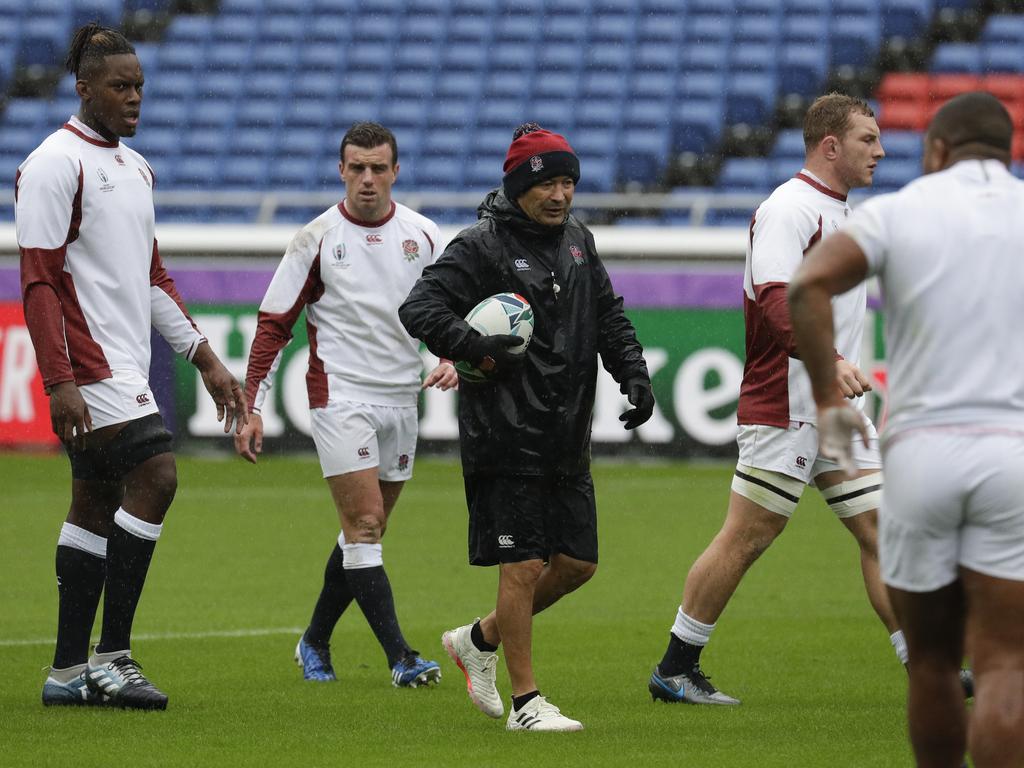
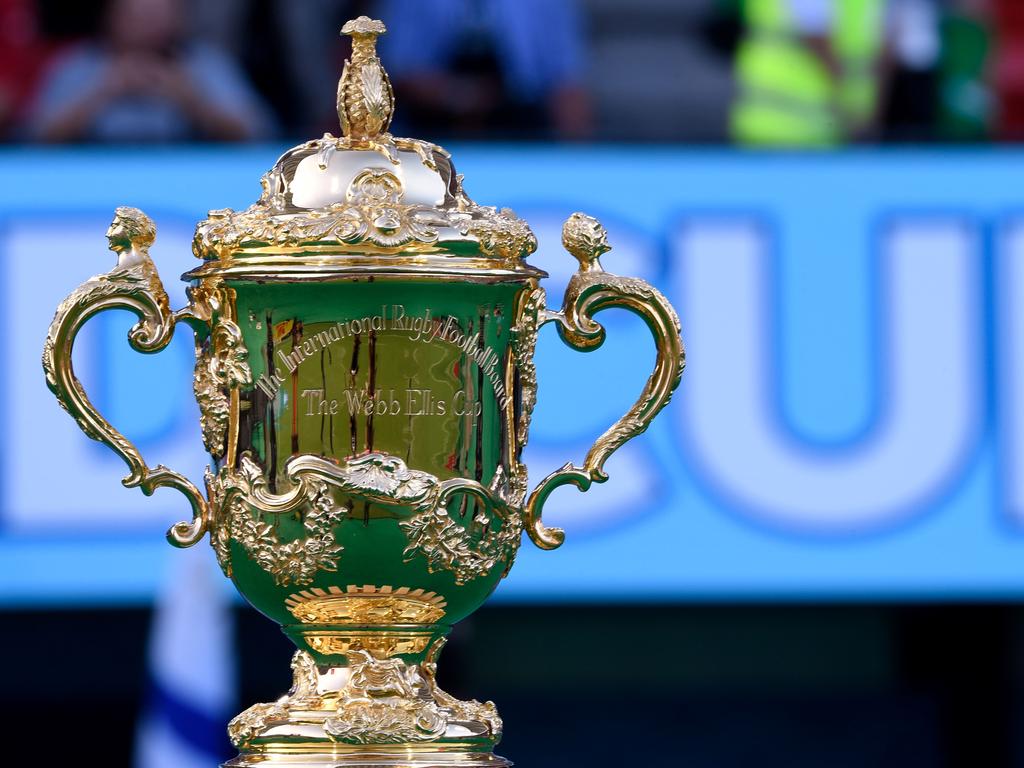


To join the conversation, please log in. Don't have an account? Register
Join the conversation, you are commenting as Logout